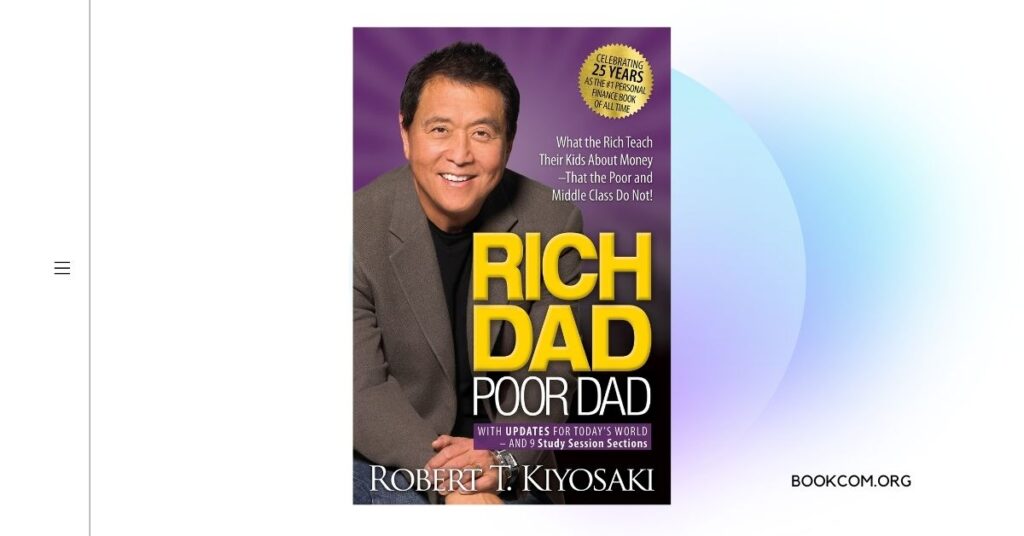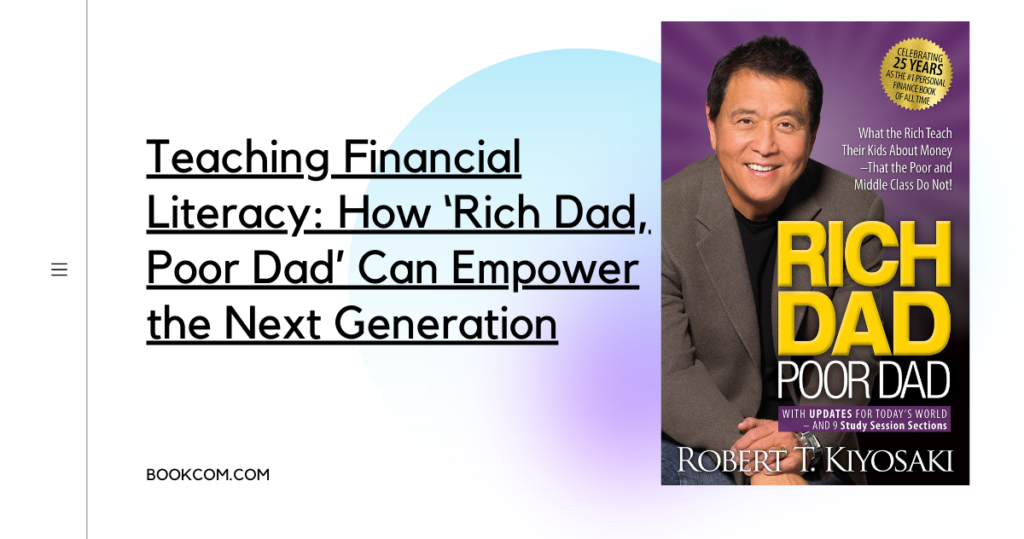In today’s ever-changing financial landscape, the need for financial education has never been more critical. Among the many influential books on personal finance, “Rich Dad, Poor Dad” by Robert Kiyosaki stands out as a catalyst for a financial education revolution. By challenging conventional wisdom and providing valuable insights, this book has the power to transform your financial outlook. In this article, we will delve into the lessons from ‘Rich Dad, Poor Dad’ and explore how they can revolutionize your approach to money.
Lesson 1: Rethinking the Purpose of Education
One of the core lessons in ‘Rich Dad, Poor Dad’ is reevaluating the purpose of education. Kiyosaki emphasizes that the traditional education system often focuses on teaching people to become employees rather than entrepreneurs or investors. To achieve financial independence, it is crucial to go beyond traditional education and actively seek financial knowledge and skills.
Practical Tip: Expand your financial education by attending workshops, seminars, or online courses that specialize in personal finance, investing, and entrepreneurship. Take charge of your learning journey and explore topics that will empower you to make informed financial decisions.
Lesson 2: The Power of Financial Mindset
A significant paradigm shift presented in ‘Rich Dad, Poor Dad’ is the power of a financial mindset. Kiyosaki highlights the importance of cultivating a mindset that embraces opportunities, takes calculated risks, and learns from failures. A strong financial mindset enables individuals to overcome challenges, persist in pursuing their goals, and see setbacks as stepping stones to success.
Practical Tip: Engage in personal development activities such as reading books on mindset, attending motivational seminars, or practicing affirmations and visualization. Surround yourself with positive influences and seek out mentors who can provide guidance and support in developing a resilient financial mindset.
Lesson 3: Building Assets for Wealth Creation
‘Rich Dad, Poor Dad’ underscores the significance of building assets for long-term wealth creation. The book defines assets as income-generating investments like real estate, stocks, or businesses. By focusing on acquiring assets rather than accumulating liabilities, individuals can shift from a paycheck-to-paycheck cycle to a path of financial freedom.
Practical Tip: Assess your financial situation and identify opportunities to invest in income-generating assets. Consider diversifying your portfolio by investing in real estate, stocks, bonds, or starting a side business. Aim to build a balanced portfolio that generates passive income and appreciates over time.
Lesson 4: Leveraging the Power of Leverage
Leverage is a key concept highlighted in ‘Rich Dad, Poor Dad.’ Kiyosaki explains that the wealthy understand how to use other people’s money, skills, and time to their advantage. By effectively leveraging resources, individuals can accelerate their wealth-building journey and achieve financial goals more efficiently.
Practical Tip: Educate yourself about various forms of leverage, such as loans, partnerships, or outsourcing. Explore opportunities to collaborate with others, whether through joint ventures or strategic alliances, to leverage complementary skills and resources. However, exercise caution and conduct thorough due diligence to minimize potential risks.
Lesson 5: Embracing Financial Independence
‘Rich Dad, Poor Dad’ advocates for pursuing financial independence rather than merely relying on a job for income. The book encourages individuals to strive for financial freedom, where their passive income exceeds their expenses, providing them with the flexibility to pursue their passions and live life on their terms.
Practical Tip: Take steps to increase your passive income by diversifying your income streams. Invest in assets that generate consistent cash flow, reduce unnecessary expenses, and maintain a healthy savings habit. Set financial goals and regularly review your progress to ensure you are on track to achieving financial independence.
The impact of ‘Rich Dad, Poor Dad’ on the financial education landscape is undeniable. By challenging traditional beliefs and offering practical insights, this book has sparked a revolution in how people approach money. Embracing the lessons from ‘Rich Dad, Poor Dad’ empowers individuals to redefine their financial education, cultivate a powerful financial mindset, build assets, leverage resources, and strive for financial independence. Let the principles of this book guide you on your journey towards financial success and create a brighter financial future for yourself.



